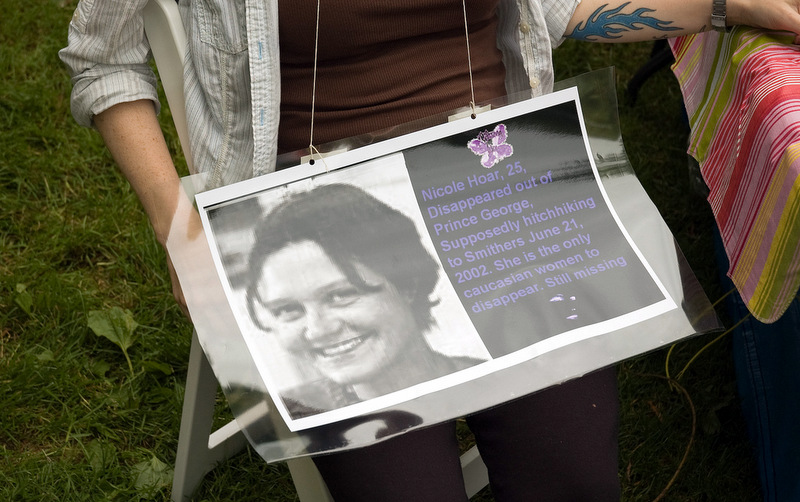
A recently released public database contains the names of hundreds of aboriginal women who have either been murdered or gone missing in Canada since the 1940s, particularly in the 2000s.
One new report citing an Ottawa researcher puts the number of dead or missing indigenous women at 824, the Winnipeg Free Press reported in January. Another more widely used, but older statistic puts the number at around 600, according to Al-Jazeera’s report, which cites data from the Native Women’s Association of Canada.
The new database was compiled by Canadian government civil servant Maryanne Pearce, who is completing her studies at the law school of the University of Ottawa. It identifies thousands of missing and murdered women, including 824 Inuit, Métis or First Nations women, the Free Press reported.
Robert Pitkin, a serial murderer, targeted sex trade workers in the 1990s, which contributed to the stereotype that women who were turning up missing had put themselves in harms way by purposely working as prostitutes. Pearce’s research, however, helps discredit this stereotype.
“Among her findings, Pearce found 80 percent of missing or murdered aboriginal women were not in the sex trade,” the Free Press reported. “That’s despite the perception most cases involve prostitutes or women engaged in high-risk behaviour.”
Though the Liberal and New Democratic parties have called for public investigations into the matter and a special committee was set up by the House of Commons, the ruling Conservative government has resisted such efforts, Al-Jazeera reported. Liberal MP Carolyn Bennett, vice chairman of the committee, worried that the Conservative party would use its majority to forestall any organized effort to dig deeper into the mystery.
“I have been very disappointed at the committee’s lack of flexibility and the linear approach to our hearings,” Bennett told Al-Jazeera. “I believe that only a national public inquiry would have the scope and resources necessary to identify the root causes of this ongoing tragedy, provide justice for the victims and true healing for their loved ones.”
Human Rights Watch testified to the House of Commons committee and has been investigating the violence against indigenous Canadian women since 2012.
“Indigenous women and girls are not only under-protected by the police, but some have experienced outright police abuse,” head HRW researcher Meghan Rhoad told Al-Jazeera.
The Al-Jazeera article noted that Rhoad said “that many indigenous women reported having little faith that the same police forces that mistreated them in the past could offer them protection in the broader community.”
The families of the victims have grown frustrated with the process. Though attention is being brought to the media’s attention, “nobody’s doing anything about it,” said Bridget Tolley, the co-founder of Families of Sisters in Spirit, an Ottawa-based nonprofit organization led by relatives of missing and murdered indigenous women, according to Al-Jazeera.

